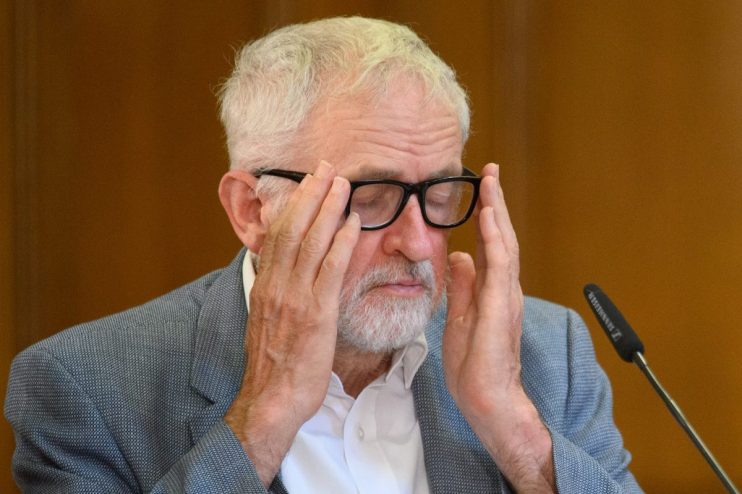The British left has questions to answer over Bristol graduate’s abduction in Venezuela

Jesús Armas, a former intern at the Institute of Economic Affairs who stood up for freedom on the world stage, has disappeared in Venezuela. Why are the left so wilfully blind to the human rights abuses of those who share their beliefs abroad? Ask Emma Revell
Last Wednesday morning I woke up to messages from friends in several different countries telling me a former colleague had been kidnapped. If I’ve had a stranger morning, I can’t remember it.
Jesús Armas was not your usual Institute of Economic Affairs intern. He was older and more experienced than your average liberty-minded undergraduate looking for something to help grow their CV. He helped lead a political party, he’d served on a city council for five years and even had been a pre-election candidate to run for mayor. But he had done all that in Caracus, in Venezuela, under one of the most oppressive regimes on earth. As a passionate liberal, who believed in personal, economic and democratic freedoms, he had spent his life trying to save his country and wanted the chance to come to the IEA to learn from people he felt had led the way in securing swathes of free market reforms for Britain.
Prior to when I met him at the IEA, Jesus had come to the UK under a Chevening Fellowship to get his masters’ degree at the University of Bristol and afterwards went on to become an Obama Foundation scholar, such is his determination to advocate on the world stage. He stood up for the rights and freedoms of all Venezuelans and now no one knows where he is.
In Venezuela under Nicolas Maduro, to campaign for personal freedom, economic liberty, and basic democratic rights is to mark yourself out as a dangerous opponent. Maduro relies on oppression to maintain control of the country, as we saw when freer and fairer elections earlier this year resulted in a landslide against him. So much so that those like Jesús who had been involved in protecting the integrity of the elections and standing up for basic freedoms we in the UK so often take for granted, had to go into hiding.
Hiding which came to an abrupt end on 10 December, just after 9pm in Caracas. Six masked men forced Jesús into a silver car and drove away. His lawyers believe he is being held in a well-known torture centre under the custody of Venezuela’s political police – the Venezuelan authorities have failed to confirm his whereabouts.
Despots, not deities
Maduro has not yet reached the stage of dictatorial fame whereby his face adorns merchandise – T-shirts, badges, and hats beloved by the sort of naive youth and intransigent elder socialists who think Che Guevara and Fidel Castro were deities, not despots. But that does not mean his crimes are any less grievous. Jesús is one of over 2,000 people who have been arbitrarily detained since the election in July, one which Maduro rejects because it showed the will of the Venezuelan people is to be free of him. Over 230 people died in Venezuelan hospitals between 2019 and 2021 because the nation’s government pursued economic policies which led to blackouts. Over 7m people have left the country in recent years, desperate to escape the economic devastation, collapsing healthcare system and political oppression.
And yet, support, whether tactic or explicit, for the regime persists. Jeremy Corbyn, patron saint of British lefties, has previously spoken out against potential UK sanctions on Venezuela under Maduro, implying the US and UK were pursuing regime change. “The future of Venezuela is a matter for Venezuelans”, he said back in 2019. Why then, in the five months since the population indicated their clear and overwhelming desire to be rid of Maduro, has he said nothing?
Much has been said and written about the apparent blindness people like Corbyn have to human rights abuses and economic disasters inflicted by those who share their political beliefs overseas. Since Keir Starmer became Labour Party leader he has quieted this element within his parliamentary ranks. But we in Britain risk forgetting about the impact people like Corbyn can have both at home and abroad.
Having the support of parliamentarians overseas strengthens and legitimises autocratic regimes
To be clear, the threat posed by socialist dictators far outstrips the damage that can be done by naive sympathisers in the West. These crimes of Maduro and his ilk so far outweigh anything we see in Britain today, that to claim I’m drawing a direct comparison would be absurd.
But that does not mean people in Britain should not remain conscious of the fact that having the support of parliamentarians overseas strengthens and legitimises autocratic regimes. Having senior public figures and online commentators praise people like Maduro, without critically engaging with the realities of what that means for citizens living under their rule, minimises his actions. It allows people like Owen Jones to call the UK a “tin-pot” country because some MPs have second jobs while supporting genuinely anti-democracy authorities abroad.
It allows Brits to look the other way while 2,000 politically-motivated abductions take place because the reality of what is happening to the people of Venezuela isn’t cutting through. I don’t know Jesús well but I do know there is a network of people across the globe working to make as much noise about his disappearance as possible in the hope it leads to a positive outcome. The only thing I can do is call out those who sympathise with the regime which likely supports his captors.
Emma Revell is external affairs director at the Centre for Policy Studies
